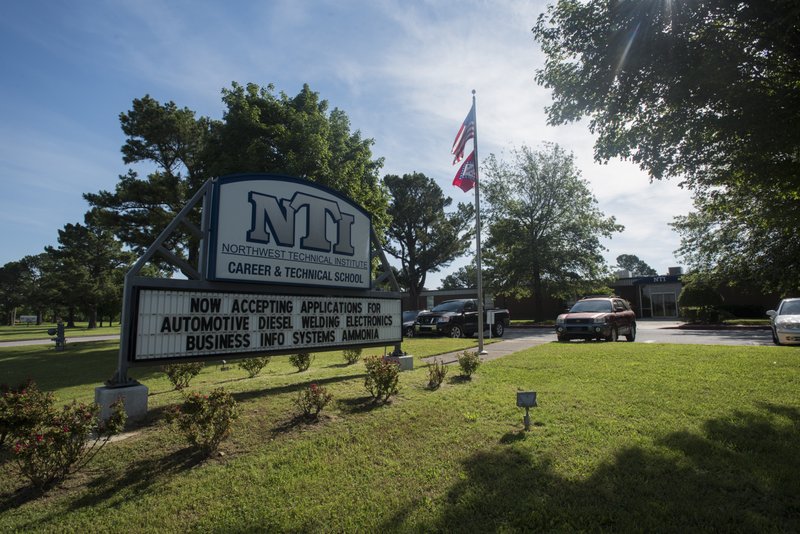SPRINGDALE -- Northwest Technical Institute will buy the last piece of land it needs to expand its campus for a health sciences building.
The board approved the measure 3-0 on Thursday.
Directors also learned the school will raise tuition by 3% for the fall.
The school will buy a 3.75-acre strip of property along Old Missouri Road for $723,000, said Jim Rollins, the school's president. The property is owned by Philip Taldo, Rollins said.
The school already owns the property directly east and south of the strip. The Springdale Benevolent Foundation owns the land north of the strip, which uses the grounds for the Rodeo of the Ozarks.
"We want the land for our medical building," Rollins said. "It's got visibility and access. It will be a draw for our campus."
Board members Derek Gibson and Aaron Wright were not at the meeting.
The school will use part of $2 million granted to it by the city through the Excellerate Foundation to buy the land, Rollins said. The money came to the city as part of the American Rescue Plan.
The City Council in June 2022 approved spending the money to help the foundation create the Upskill program for workforce development and job placement. In addition to the $2 million for a new building, the city granted $900,000 for programming.
The remainder of the $2 million will be used for design or construction of the facility.
"Dr. Rollins, I think it's really important that we move forward on the land," Kelly Johnson reiterated at the end of the meeting. Johnson is a member of the school's board of directors.
Rollins said August 2024 was the school's original target date to open the building, but raising state and federal funds has been a process, he said. Engineering and construction won't be started until the school raises the funds.
Northwest Technical Institute will raise tuition for its diploma programs beginning with the fall semester, announced Melissa Greenslade, vice president of curriculum and instruction for the school.
In-state tuition will increase from $66 per credit hour to $68 per credit hour. Out-of-state tuition will rise to $73.50 per credit hour.
Rollins explained most of the school's funding comes from the state's general revenue, with an amount appropriated every two years.
"Our funding for the next two years is flat," Rollins said. "We will have no new money for the next two years. The only way we have to get more money to operate the school is through tuition and fees."
Greenslade said the hourly rate still falls under the maximum per hour federal Pell grants will pay. She said that roughly half of the school's students pay for school with Pell grants, and half of the students receiving the grants get their full tuition paid by the grants.
The school also is making some changes in the fees paid by students in the truck technology, information systems and surgical technology programs, she added.
Excellerate officials approached the governments of Benton and Washington counties and the region's four largest cities to fund the Upskill program. The requests were based on 4% of a city's or county's allotment from the American Rescue Plan for covid-19 recovery, Jeff Webster, the president and chief executive officer of the Excellerate Foundation, told the City Council last year.
Springdale gave the same amount to Northwest Arkansas Community College to build a similar facility and program at its Springdale campus.
Springdale received $9,194,245 under the rescue plan to replace revenue lost during the closures of many businesses and corresponding reduced sales tax receipts in the face of covid-19.
The Upskill program would allow residents who lack resources to make changes for their families and fill essential jobs in the region's medical industry, Webster said. Upskill staff members would step in with social services for the students, as needed.
The region's largest health care systems would agree to hire graduates of the program, Webster continued. Graduates, in return, would agree to work for two years at the medical companies that hire them.

